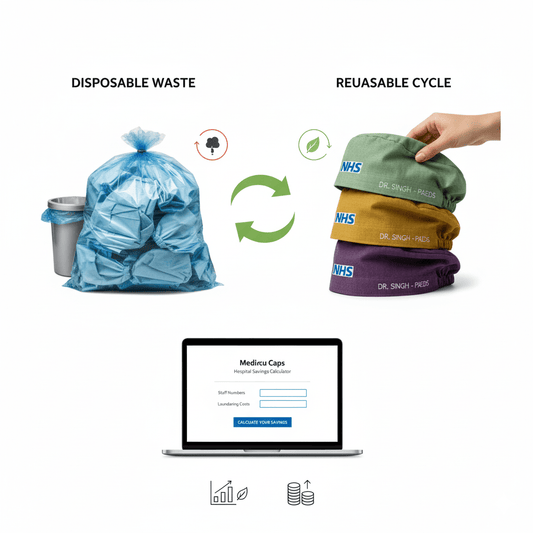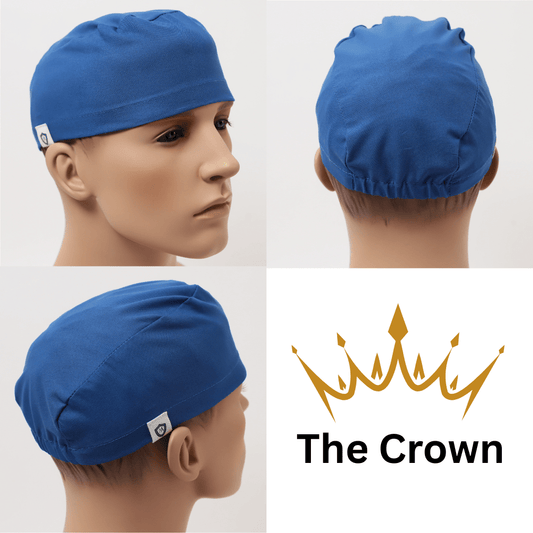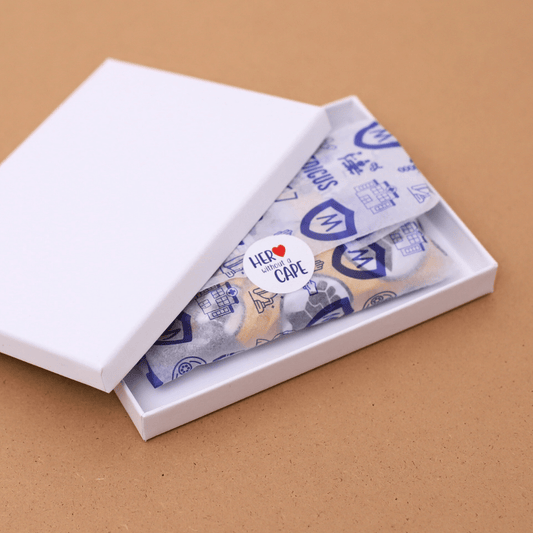
The CO2e of washing your Medicus scrub caps
The CO2e Impact of Washing Your Medicus Scrub Caps
Scrub caps play a vital role in medical uniforms, serving both hygienic and functional purposes. However, like all clothing, you should consider their environmental impact. This blog examines the carbon footprint of washing your Medicus scrub caps, offering insights into how this process contributes to your overall environmental footprint. Understanding these impacts will help you make more informed decisions about caring for your scrub caps while maintaining both cleanliness and sustainability. Learn more about the environmental impact of laundry.
The Basics of Medicus Scrub Caps
Medicus scrub caps come in various styles and sizes, typically weighing around 30 grams for the larger sizes. These caps are made from comfortable, durable materials such as 100% cotton or hemp. Healthcare professionals often rotate multiple scrub caps throughout the week, allowing for regular washing without overloading the laundry process. Learn more about sustainable fabric choices for healthcare uniforms.
The Carbon Footprint of Washing Medicus Scrub Caps
To understand the carbon footprint of washing your Medicus scrub caps, consider the following factors:
- Washing Machine: We assume a standard 7KG washing machine.
- Energy Consumption: The average energy consumption is 58 kWh per 100 washes. Discover more about household energy consumption here.
- CO2 Emissions: In the UK, electricity generation emits 0.23314 kg CO2e per kWh. Therefore, washing your Medicus scrub caps results in an average carbon footprint of approximately 0.135 kg CO2e per wash. Read about UK electricity and its CO2 emissions.





